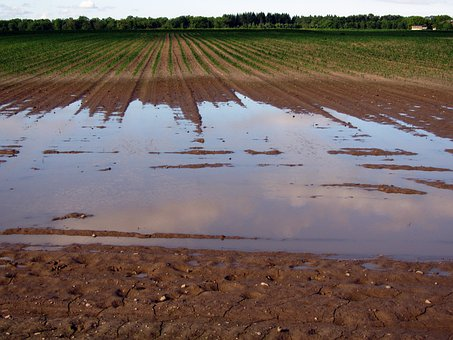The key to reducing natural disaster mental health pain
Luke Williams
12 May 2023, 9:40 PM

A new study suggests that ground-up strategies created by local people can make the biggest difference to how we cope when mother nature puts the pressure on.
According to the latest research the provision of general community-led support can significantly reduce the mental health and well-being impacts of extreme weather-related events.
Researchers from the University Centre for Rural Health at the University of Sydney have just published an article in the journal of Climate Change and Health exploring the mental health and wellbeing impacts of "climate change induced events".
The study said the provision of locally-led initiatives were a major factor in building resilience and provided many examples including creative-arts based activities, nature based programs such as Landcare, peer support initiatives, the work of groups like men's sheds and special events held by sporting groups.
"General community-led support included a broad range of activities that shared principles of being inclusive, democratic, and community based. These activities supported mental health and wellbeing both explicitly and implicitly and focused on bringing people together" the report said.
"These aspects of social and relational capital can play an important role in mitigating negative mental health impacts of climate change" it said.
The researchers to pointed to two other factors that promoted resilience of rural communities to these impacts – community-focused climate change action and politically-focused climate change action.
" Examples of community-focused climate action were practical climate change mitigation and adaptation activities which had local impact and influence. Distinct from these actions, numerous participants described the mental health and wellbeing benefits of more politically-focused climate change mitigation actions such as challenging specific climate policies and political inaction" the authors asserted.

Image: pixabay.
One study participant told the authors "“So often we hear… that ‘community-led’ is held up as the way things should be done. Governments need to really take that on board and put their money where their mouth is… [They] really need to put funding and effort forward to support community-led initiatives, enable communities to do this work together… Why is that the secret of success? I think it is about ownership, engagement and participation.”
While another said community-based action “is our sphere of influence isn't it? It's the place in which we have connection and belonging (hopefully). locality at a time. So yeah, for me the place-based is very powerful.”
Researchers quoted another participant who said "action is the antidote to despair".
They University of Sydney academics that social interaction aspects of taking action together, democratically ( was seen as essential to tackling “big wicked problems” (Area 1, workshop) like climate change and its mental health and wellbeing impacts. So the effect of these actions was two-fold – one was that they felt empowered taking some of action on a big global issue than otherwise feel disempowering and two gained a sense of belonging of social connectedness.
"In sum, this study engaged a range of community members from three climate change-impacted rural areas of NSW who described how community-led collective action and planning which strengthens social and relational capital, engenders feelings of belonging, and increases informal social connectedness can help address the mental health and wellbeing impacts of climate change, while simultaneously supporting communities to prepare for those impacts" the report concluded.




